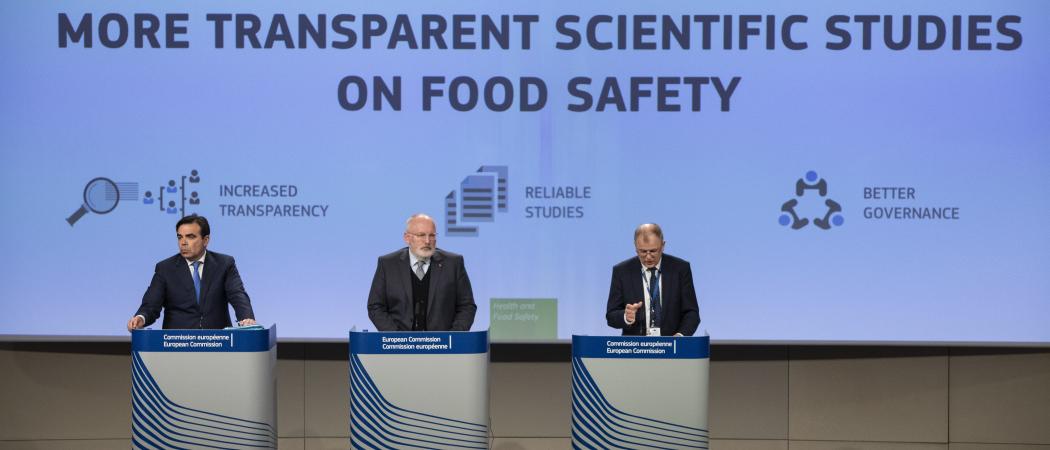Proposal follows public concern over reapproval of controversial weedkiller glyphosate

The European Commission has set out a plan to boost transparency around industry-led studies on food safety, in a move to avoid controversy such as that which followed the approval of the controversial weedkiller glyphosate last year.
The EU executive proposes all studies and supporting information submitted to the European Food Safety Authority (EFSA) by industry will in future be made public “proactively and automatically, at the very early stage of the process”, so that scientists can assess the research independently.
The proposal, which needs to be approved by the European Parliament and 28 governments, would also allow for better representation of member states’ experts in the EFSA’s management board and gives the science agency more powers to request studies on the safety of products.
“It goes without saying that the responsibility to demonstrate that a product is safe continues to lie with the industry,” European Commission Vice President Frans Timmermans said outlining the proposal. “But in controversial cases EFSA will now also be able to commission its own studies financed from the EU budget.”
Publishing previously confidential industry study data in a machine-readable format “is an important first step in the right direction,” said Martin Pigeon, a food policy campaigner with Corporate Europe Observatory, a pressure group based in Brussels. “So is the creation of a public register of studies to prevent industry from submitting only results favourable to their products to EFSA.”
However, he points out that the new the proposal comes with a big caveat, “that means anyone wanting to quote and use the data will need to ask permission to do so from the company that has provided EFSA with this data. This creates a huge risk that industry will block any scientific scrutiny of EFSA’s assessment of their products.”
The push to increase transparency in EFSA’s work seeks to escape the frenzy of suspicion that dogged the Commission’s decision to renew the licence allowing glyphosate’s sale. That followed an EFSA recommendation that diverged from that of the International Agency for Research on Cancer, which views the chemical as “probably carcinogenic”.
Other expert bodies, including one set up by the Food and Agriculture Organization of the United Nations, and the World Health Organization, agreed with EFSA’s conclusion.





 A unique international forum for public research organisations and companies to connect their external engagement with strategic interests around their R&D system.
A unique international forum for public research organisations and companies to connect their external engagement with strategic interests around their R&D system.